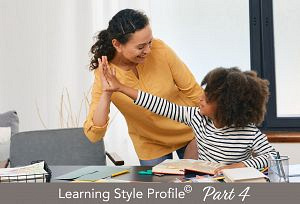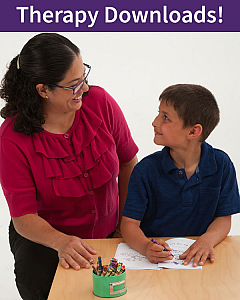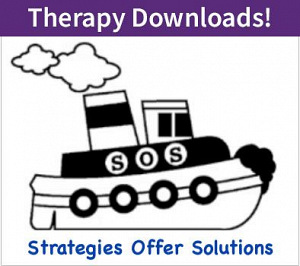"It is very important to listen to our patients. I liked how the presenter talked about how he starts his patients session by getting to know them, what they're interested in, etc." E.T. (Jun. 2025)
"I appreciated having a better understanding of what my clients and parents are going through. Very knowledgeable speaker." C.C. (Jun. 2025)
"Chronic pain was the most beneficial discussion. I had to take this course for my license. It was easy to follow and organized. It met the requirements for my license." K.M. (Jun. 2025)
"Neuroplasticity of pain was the best discussion. I liked the convenience." A.T. (Jun. 2025)
"The best discussion was on how to consider the emotional/psychological impact of chronic pain. I liked the real-life examples and applications." K.G. (May 2025)
"Anxiety and fear and basic info about chronic pain was most beneficial. I liked the ease of access, easy to use." S.N. (May 2025)
"I'm currently not practicing as an SLP but this helped explain my own recent physical therapy process. Very interesting because I've lived through it and makes perfect sense. I loved that the instructor just spoke and didn't read the powerpoint slides word for word." K.M. (May 2025)
"Going over how pain and mental health are connected was most beneficial. I liked the novel, current information and that it was presented with consideration of the whole person." A.L. (Apr. 2025)
"Understanding that chronic pain may present as emotional dysregulation, decreased participation, or avoidance behaviors helps me better support students who struggle to stay engaged in therapy or the classroom. The connection between pain, anxiety, and neuroplasticity really emphasized how emotional and physical states affect communication and learning. I appreciated the emphasis on soft skills—particularly the sections about active listening, providing autonomy, and validating patient experience. These strategies are just as essential for SLPs working with children as they are for PTs working with adults. Many of my students with communication challenges also experience co-occurring stress. Knowing how to respond with empathy and empowering language can build trust and improve therapeutic outcomes." C.M. (Apr. 2025)
"I appreciated acknowledging and recognizing that pain (or anything someone feels) is a personal experience. Straightforward course." L.G. (Apr. 2025)
"The listening skills were beneficial. Clear presentation." M.L. (Apr. 2025)
"This course presented new-to-me information in an understandable way. Using active listening, autonomy, and how nociplasticity works." C.B. (Apr. 2025)
"Difference between fear and anxiety and the shift in patient focus from "expert" focus and how autonomy can produce physiological changes. I liked the description of generalized exercise. Convenience. The presenter was engaging and knowledgeable." K.S. (Mar. 2025)
"Discussion of autonomy was helpful and educational. Interesting content, delivered well." J.K. (Feb. 2025)
"The client-centered approach, allowing them to be involved in treatment planning was beneficial. I liked the specific examples on how to manage interactions with clients with chronic pain and to get them involved in the treatment planning process." A.W. (Feb. 2025)
"Nociplasticity was a beneficial topic. I liked the practical use." A.M. (Feb. 2025)
"I found the specific examples of productive communication strategies helpful to improve the efficacy of my future interactions with patients experiencing chronic pain. Content was clearly communicated." S.K. (Jan. 2025)
"Discussing nociplasticity and the reminder that placebos can be helpful." C.J. (Nov. 2024)
"The discussion on pain management and using the placebo effect was beneficial." L.W. (Nov. 2024)
"The role of autonomy on chronic pain was beneficial to discuss. I thought the slides were supportive of the topic and the speaker engaging." L.G. (Nov. 2024)
"How to handle pain was a beneficial topic." J.E. (Nov. 2024)
"The placebo information was beneficial." P.E. (Oct. 2024)
"I really liked the connection to physical and psychological issues with chronic pain. Very knowledgeable instructor, easy to listen to and to follow his ideas." J.D. (Oct. 2024)
"All of the information was beneficial, and I liked the clarity." K.G. (Oct. 2024)
"Generalized exercise and nociplasticity. Straight forward." M.G. (Oct. 2024)
"I liked the overall topic and that this course meets the requirements of my licensure." C.W. (Sep. 2024)
"Autonomy section was beneficial. I liked that I could take the course on my own time." K.K. (Sep. 2024)
"The understanding of chronic pain and how it can affect a person was beneficial." S.S. (Sep. 2024)
"Active listening in pain management was a helpful topic. Clearly presented information." E.D. (Aug. 2024)
"The chart on "this is your brain on pain" is REALLY helpful in reminding me that my patient may be demonstrating decreased recall, response times, attention, etc. due to chronic pain. Fear vs anxiety and how to ferret out which (or both) may be at issue with chronic pain (or ANYTHING, for that matter)." M.C. (Aug. 2024)
"The discussion related to patient autonomy and patient/provider collaboration was beneficial in supporting patients' goals and outcomes. The presenter provided information in an organized and accessible manner." M.M. (Aug. 2024)
"Discussing pain strategies was beneficial. This course satisfied my pain management requirement for my license." K.C. (Jul. 2024)
"Learning about the physiology of pain was helpful. The format was easy to follow and understand." P.C. (Jul. 2024)
"The autonomy was beneficial." M.S. (Jun. 2024)
"I enjoyed the presentation." L.C. (Jun. 2024)
"Using autonomy for the patient; this could be applied to all areas of speech-language therapy. Visuals, good pace, informative." D.R. (Jun. 2024)
"As an SLP I work with elderly patients who have chronic and often significant pain. It helps me understand the pathways and statements that I can make that may be supportive. I enjoyed part 2 and the emphasis on hopefulness, placebo effect and the part that learned associations with pain can interfere with patient's quality of life (firing and wiring)." S.L. (May. 2024)
"This course was beneficial and is a state licensure requirement. I liked that this course was easy to follow." H.D. (May. 2024)
"Fear/anxiety component was beneficial to discuss. The speaker was passionate." N.I. (May. 2024)
"Discussion on how pain impacts the brain and overall cognition was helpful." L.P. (May. 2024)
"Beneficial knowledge about how prevalent chronic pain is. I liked the video learning and examples." M.K. (May. 2024)
"I enjoyed the discussion of how pts perceive pain differently and the variety of areas that can be affected by pain." L.C. (Apr. 2024)
"It was beneficial to discuss how prevalent fear is in chronic pain. The course was easy to relate to for SLPs." K.A. (Apr. 2024)
"The active listening information and how giving the patient autonomy can improve outcomes was beneficial. The presenter was easy to listen to and follow. I liked being able to complete the class on my own timeline." E.H. (Apr. 2024)
"This course provided a useful discussion of chronic pain as well as the effects of chronic pain on individuals. I liked the self-pace study." C.T. (Apr. 2024)
"The effects of movement and autonomy and how it improves your health and healing were beneficial to discuss." J.G. (Apr. 2024)
"All the content was beneficial for my daily practice. I liked that I could take the course at my own pace." S.Z. (Mar. 2024)
"I appreciated the information for myself personally." W.S. (Mar. 2024)
"I took away looking at functional movement and how it's purposeful and productive in the person's life. I liked being able to have the pretest to look at the questions that would be on the test. It was very helpful to have as I listened to the presenter." K.M. (Mar. 2024)
"I liked the inclusion of the person's "story" and the repetition of key elements." J.H. (Feb. 2024)
"Learning about the connection between fear and pain was beneficial." L.M. (Jan. 2024)
"Content related to getting to know the "whole person," not just asking questions specific to their pain. The content around all the ways chronic pain affects brain function was also very helpful. The presenter was engaging and presented at a good pace." K.W. (Jan. 2024)
"The discussion of autonomy was beneficial. I liked that the course considered all aspects impacting pain." J.S. (Dec. 2023)
"I liked the information regarding concentration and executive functioning changes due to chronic pain. The course was interesting." T.G. (Dec. 2023)
"Holistic approach across therapeutic disciplines. I liked the course consistency and application." S.C. (Dec. 2023)
"Understanding underlying symptoms of pain management when working with students, educators, and parents. I liked how accessible the course was and how easy it was to follow along and download my materials." C.D. (Dec. 2023)
"I gained helpful suggestions on how to work with patients with chronic pain to engage in more therapy/movement activities." A.C. (Dec. 2023)
"Understanding the neurophysiology of pain was beneficial. I liked the thoroughness of the handout to follow the slides." C.C. (Dec. 2023)
"Treating patients complicated by chronic pain conditions was helpful. Convenient course." J.Z. (Nov. 2023)
"Discussing fear and anxiety was helpful." M.T. (Nov. 2023)
"The presenter was engaging and easy to listen to. The topic on chronic pain was beneficial." S.W. (Nov. 2023)
"I work in home health - primarily Geriatrics. All info pertinent to my job. Direct presentation. Not a lot of fluff. To the point - I learned a lot." D.D. (Oct. 2023)
"It was beneficial discussing how each person experiences pain differently, and we have to be careful not to make them "prove" they have pain." S.S. (Oct. 2023)
"Very well organized course and very detailed with great examples. I liked the emphasis on the patient's needs, desires, past history, and using their daily life routines to improve their outcomes." M.S. (Oct. 2023)
"Speaker was thorough. This was good information to have." K.H. (Sep. 2023)
"Course was interesting. I liked the discussion of how pain is personal. I was also interested in the placebo effect." D.D. (Sep. 2023)
"I liked the neurological components of pain and the neurological review. Motivational interviewing was beneficial to discuss." G.D. (Sep. 2023)
"Quick and efficient course. Chronic pain information was beneficial." K.D. (Sep. 2023)
"I liked the hitchhiker analogy." C.V. (Sep. 2023)
"The speaker was very knowledgeable. I liked the analogy of an alarm with pain detector." S.D. (Sep. 2023)
"Learning how chronic pain develops was beneficial. Great information with ability to return and rewatch for future review." L.K. (Aug. 2023)
"Very clear pain management course." L.K. (Aug. 2023)
"Perfecting the patient interview - taking the patient's story was beneficial. I liked the overall detailed information and the hitchhiker analogy." C.H. (Jul. 2023)
"Discussing that pain can take on many forms. And a good reminder that patients memory or general cognitive skills can be impacted by chronic pain." A.K. (Jul. 2023)
"I liked using the person-centered approach to understanding the patient's story, rather than just the pain itself." K.H. (Jul. 2023)
"Pain and patient autonomy were beneficial topics. Easy listening, clear slides." T.W. (Jun. 2023)
"Understanding the cycle of pain and how it impacts sleep and well-being was beneficial. I liked learning how pain can result in changes in the brain." L.L. (May 2023)
"Straightforward information and helpful ways of addressing chronic pain with patients. I liked the chart depicting a patient's feelings as chronic pain continues. This allowed me to conceptualize how patients may feel with chronic pain." L.G. (Apr. 2023)
"Helpful information. Learning interactions between emotional/cognitive functioning and pain management was beneficial." S.F. (Mar. 2023)
"I liked the focus on teaming with the patient to manage pain." S.B. (Mar. 2023)
"How to support the individual to have improved outcomes through a biopsychosocial lens. I liked the presenter's mastery of the information and organization of the material." H.F. (Mar. 2023)
"Dr. Studer is an excellent and knowledgeable presenter. Learning the part played by fear and anxiety in maintaining chronic pain." L.L. (Feb. 2023)
"I liked the breadth of content." P.L. (Feb. 2023)
"This course was very easy to use and navigate." C.W. (Jan. 2023)
"Clear diagrams and explanations. I liked the discussion of the Hebbian principles in dictating behavior." J.F. (Jan. 2023)
"I felt that the presenter provided a lot of practical application for my practice." A.A. (Dec. 2022)
"Very relevant yet rarely discussed issue affecting many of my patients. Very helpful active listening techniques; providing validation and emphasis of the patient's story; knowing where pain occurs and that it cannot be explained by an imaging test." R.H. (Dec. 2022)
"I did not realize how pervasive chronic pain was in America. I found the concept of Hebbian learning to be of particular interest. I appreciated that Dr. Studer did not read directly from the slides. He gave great examples, like the boot/nail, skull/nail examples." S.V. (Dec. 2022)
"The concept of nociplasticity behavior economics was great. I liked how this course looks at pain holistically." C.W. (Dec. 2022)
"It is interesting to see how chronic pain affects cognitive function. The subject matter is very pertinent because I have many patients with acute and chronic pain. Mike presented good information about how to help the patient proceed past the pain and achieve some success with movement." K.C. (Dec. 2022)
"I liked the specific examples, learning how anxiety plays a role in pain mgt and adherence to tx plans, and specific questions geared toward the individual holistically and not simply their medical/pain background." D.L. (Nov. 2022)
"I liked the format with visuals." C.O. (Nov. 2022)
"Good explanation about how pain gets transferred from the level of the body part/tissue to the brain and mind." A.V. (Nov. 2022)
"I have a patient currently who has chronic pain and I had no idea how to help until I saw this course." A.P. (Nov. 2022)
"I found the entire presentation beneficial. My husband has chronic pain and I believe this will help me to help him. I liked the discussion of autonomy in relation to helping people who are dealing with chronic pain." C.B. (Nov. 2022)
"Great course! Pain well outlined and covered at appropriate complexity. Relevant to an SLP practice." A.L. (Oct. 2022)





